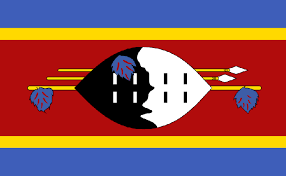Language/Swati/Grammar/Future-Tense
Hi Swati learners! 😊
In this lesson, we will dive deeper into the future tense in Swati. The future tense describes an action or event that will happen in the future. It is one of the fundamental tenses that you need to master to become fluent in Swati.
Don't hesitate to look into these other pages after completing this lesson: How to Use Be & Negation.
Forming the Future Tense[edit | edit source]
In Swati, the future tense is formed by using the auxiliary verb "za" (meaning "will") and adding it to the main verb, which is in the present tense. For example:
| Swati | Pronunciation | English |
|---|---|---|
| Sizakhala | see-za-ka-hla | We will cry |
| Uzokwazi | uu-zo-kwa-zee | You will know |
| Uzawugcina | uu-za-woo-gci-na | He/She will finish it |
As you can see, the present tense form of the main verb is used as-is, and "za" is added in front of it to indicate future tense.
Negation in the Future Tense[edit | edit source]
To form the negative future tense in Swati, "za" is replaced with "nga za".
Example:
| Swati | Pronunciation | English |
|---|---|---|
| Asizakuqhubeka | ah-see-za-koo-cu-be-ka | We will not continue |
| Anguzokwazi | ah-nguu-zo-kwa-zee | You will not know |
| Anguzawugcini | ah-nguu-za-woo-gci-nee | He/She will not finish it |
Interrogative Sentences[edit | edit source]
To form a question in the future tense in Swati, the auxiliary verb "za" is moved to the start of the sentence, before the subject.
Example:
| Swati | Pronunciation | English |
|---|---|---|
| Uza kusho nini? | uu-za-ku-sho-nee-nee | When will you say? |
| Ngiza ngizokwazi? | ng-ii-za ng-ii-zo-kwa-zee | Shall I know? |
Examples in Context[edit | edit source]
Using examples in context can help with understanding the future tense in Swati. Here is a dialogue between two friends:
- Friend 1: Ngiza ngibheke phansi. (I will look down)
- Friend 2: Usuzothini? (What will you find?)
- Friend 1: Ngizokuthola imikhuba. (I will find the keys)
Cultural Insights[edit | edit source]
Swati, also known as Swazi, is a member of the Nguni language group spoken in Swaziland and South Africa. Like many African cultures, there is a strong emphasis on communal living, respect for elders, and an oral tradition. Swati language and culture is closely intertwined with that of the Zulu people of South Africa.
If you want to improve your knowledge of the Swati language, you can also use the Polyglot Club website. Find native speakers and ask them any questions! Also, don't forget to check out the Grammar section of the Swati language course offered on Polyglot Club.
Sources[edit | edit source]
➡ If you have any questions, please ask them in the comments section below.
➡ Feel free to edit this wiki page if you think it can be improved. 😎
Other Lessons[edit | edit source]
- Pronouns
- Give your Opinion
- Negation
- Adjectives
- Plurals
- Questions
- How to Use Be
- Conditional Mood
- How to Use Have

